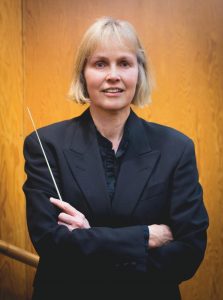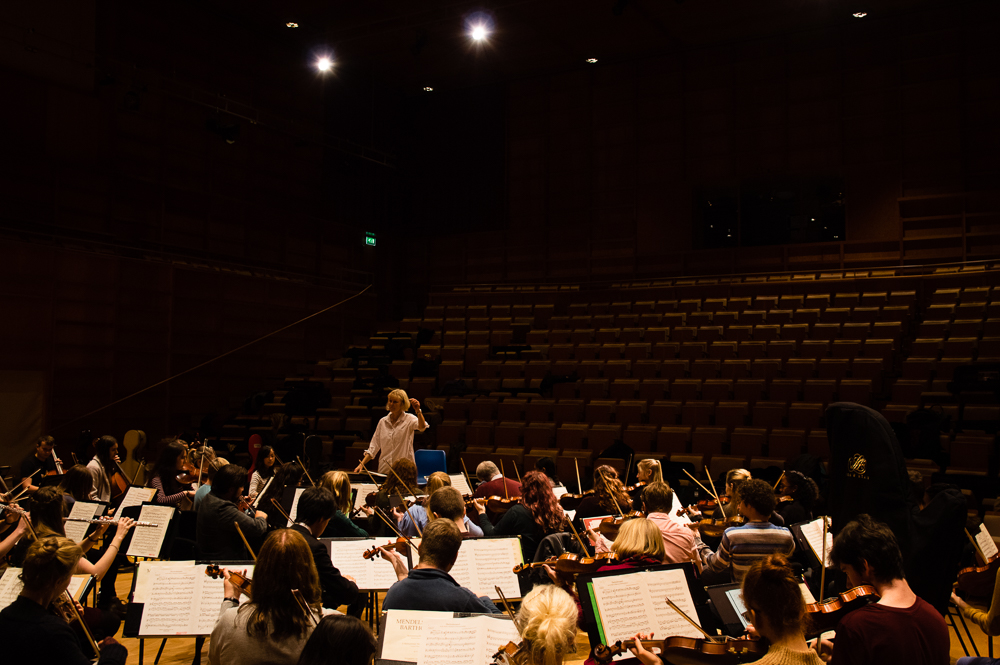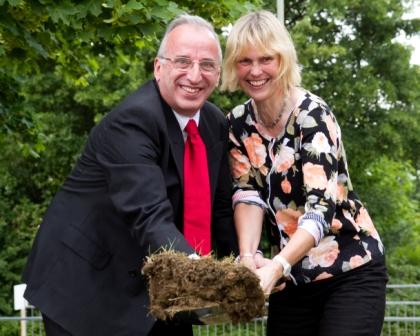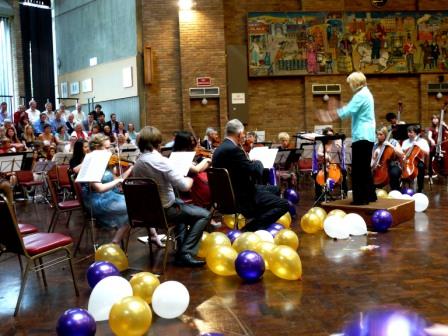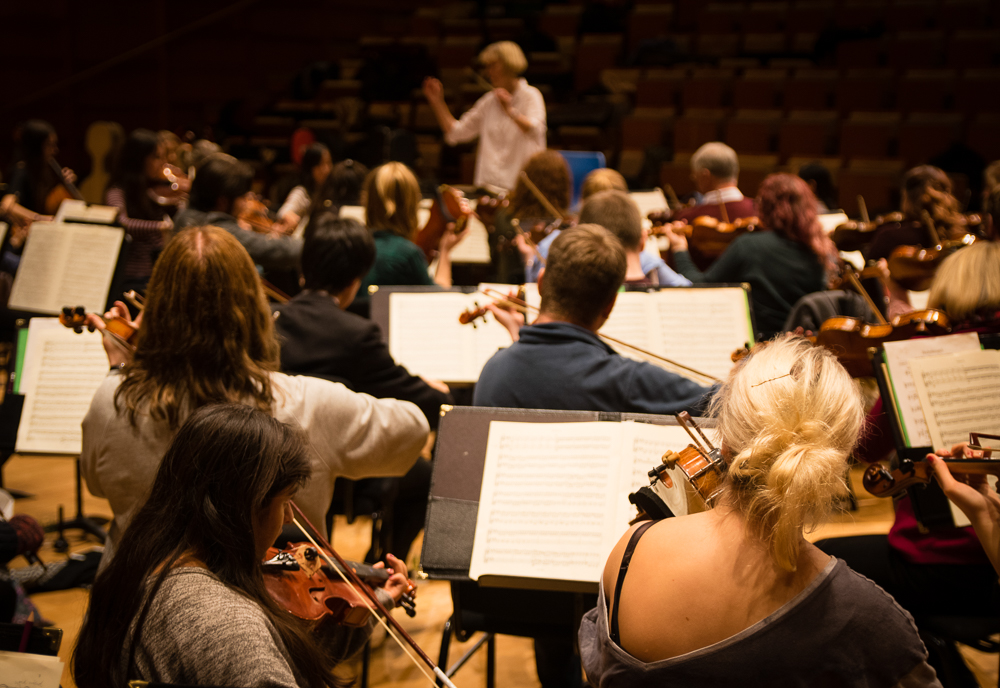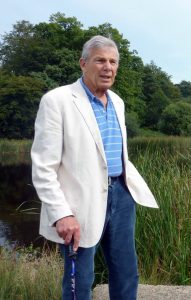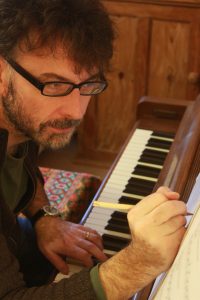Continuing the series profiling Music Scholars at the University of Kent; this week, first-year conductor, music director and instrumentalist studying Drama and English Language and Linguistics, Hannah Ost.
An early childhood video shows a little six year old girl (me) sat at a grand piano, tentatively hammering the notes of a nursery rhyme. My mum had been teaching me piano from aged five and by junior school I was just about ready to take my first grade. Eight of them later and I am now a Music Performance Scholar at the University of Kent!
Music has always been one of my main passions. I spent my Saturday mornings at a music centre, playing lead cello in a youth orchestra, singing in a choir and taking lessons in not only piano but other instruments like African drums and recorders too. I performed in concerts and recitals, whilst steadily working through the ABRSM grades in piano.
Growing up in a family of singers, car journeys became concerts for the four-part version of the Von-Trapps, or sometimes SATB choir recitals. My sister and I were in choirs all throughout our education and in late junior school, I became a chorister for the Rochester Cathedral Girls Choir, performing on Classic FM at age nine and staying up until midnight on the 24th December to chorally welcome in Christmas Day. I joined my secondary school Chamber Choir as a soprano and I was part of the Kent County Choirs for almost the whole of my secondary education. Being a member of so many choirs meant I developed a real passion for the workings of the voice and I worked hard to improve my voice in a wide range of genres.
I joined a Musical Theatre school when I was fourteen and learnt how to sing jazz, musical theatre and belt, finding my background in classical singing to be a huge help in the development of my voice. I started a YouTube channel, posting covers and original songs and I auditioned for shows, performing in musicals, which became my main passion from Sixth Form onwards. I showcased a repertoire of Stephen Sondheim music for my Music A Level, having taken Music GCSE in Key Stage Four, and took a couple of professional singing lessons to help me sing what were several particularly challenging pieces.
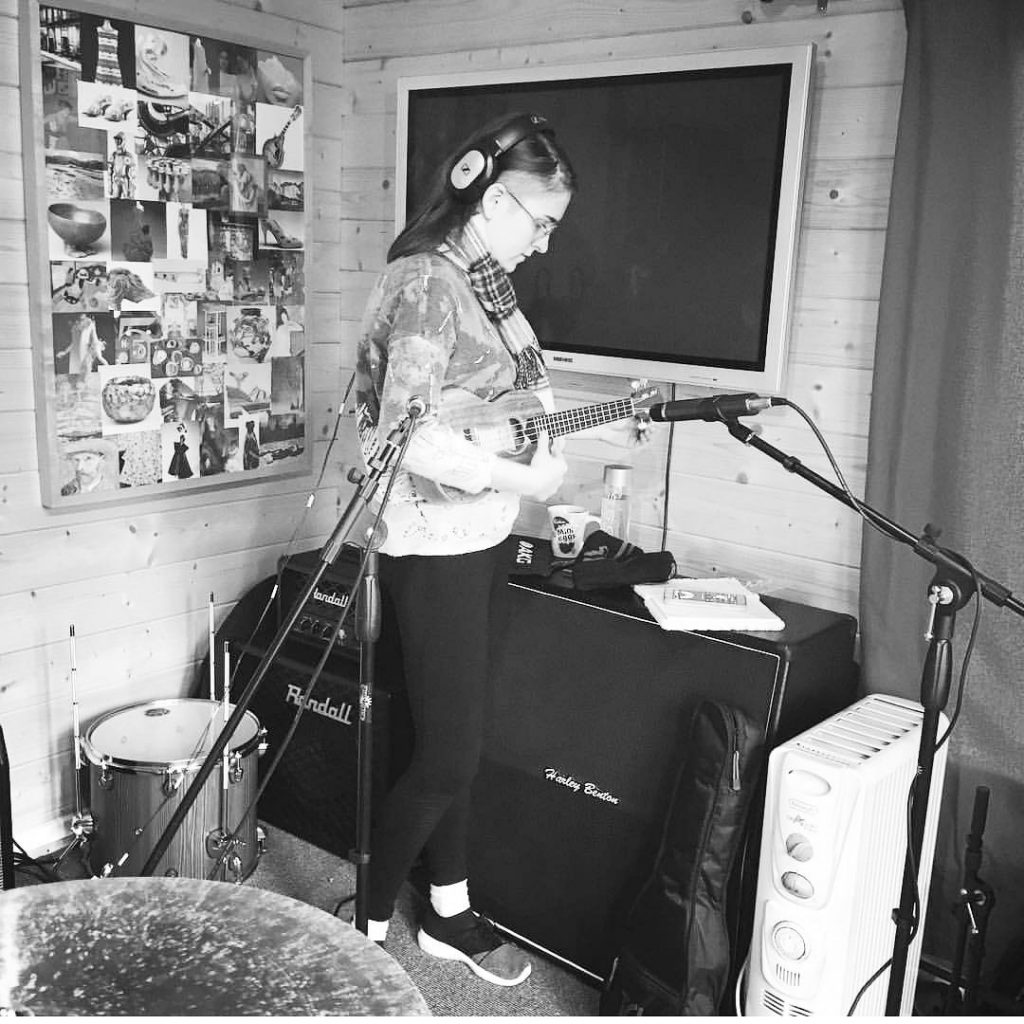 At Sixth Form at Fort Pitt Grammar School, I started to broaden my musical interests and a friend recommended me for a job at a local theatre company I had performed with. Through this, I became the youngest ever employee of a youth theatre company called RARE Productions, joining the team as a Musical Director, aged seventeen. Now, I am the coordinator of my local area; as well as my musical directing, I manage the show team and am the main point of communication between my area and the Head Offices.
At Sixth Form at Fort Pitt Grammar School, I started to broaden my musical interests and a friend recommended me for a job at a local theatre company I had performed with. Through this, I became the youngest ever employee of a youth theatre company called RARE Productions, joining the team as a Musical Director, aged seventeen. Now, I am the coordinator of my local area; as well as my musical directing, I manage the show team and am the main point of communication between my area and the Head Offices.
Finding that I really enjoyed musical directing, I started my own choir at school and taught a complex and diverse repertoire to the students who joined. I found I could combine piano and voice in a unique way, so accompanying, conducting and teaching added to my musical passions. I went on to write, direct and musically direct my own show at Fort Pitt, playing keys and conducting our live band in the final performances.
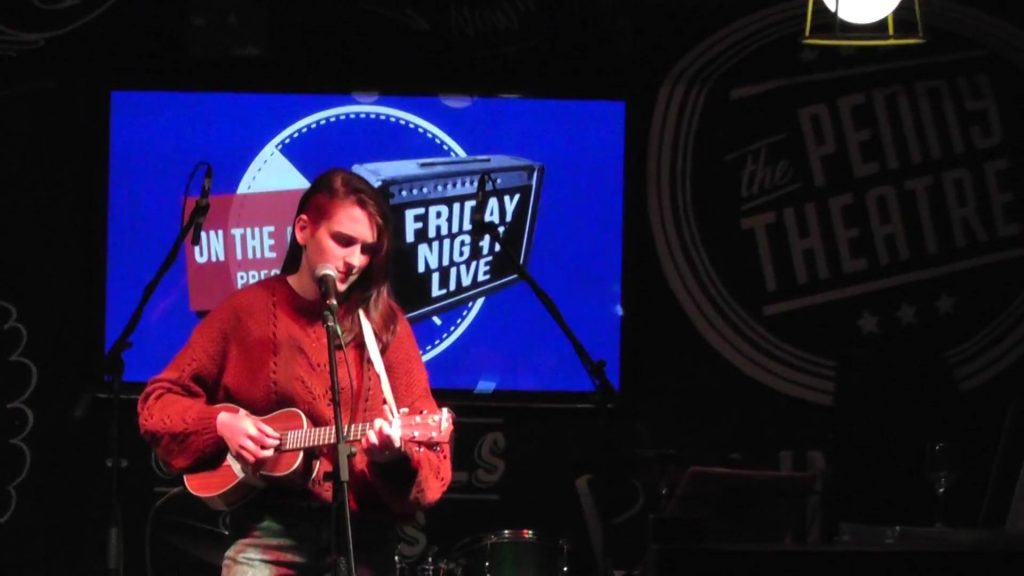 So, onto university life. Well, I’ve only been here for a term and a half but I don’t think I could have been busier if I tried! Auditioning for the scholarship was very nerve-wracking, especially since I had had a bad case of ‘Freshers’ Flu’ for about a month! I was told I’d achieved a scholarship in Musical Directing and am using the money from this to fly out to America this summer, to work as a resident Musical Director/Pianist at French Woods Festival for the Performing Arts – a prestigious performance-based summer camp, in the state of New York!
So, onto university life. Well, I’ve only been here for a term and a half but I don’t think I could have been busier if I tried! Auditioning for the scholarship was very nerve-wracking, especially since I had had a bad case of ‘Freshers’ Flu’ for about a month! I was told I’d achieved a scholarship in Musical Directing and am using the money from this to fly out to America this summer, to work as a resident Musical Director/Pianist at French Woods Festival for the Performing Arts – a prestigious performance-based summer camp, in the state of New York!
I have founded my own vocal tuition society called ‘The Pitch Project’ and I now hold weekly vocal classes for my members, using all the skills I have learnt from my background in voice and musical directing to teach a wide range of vocal techniques and genres. I have had great feedback from those involved and meetings regarding a future collaboration with Kent Sing! I have been a Musical Director for the Musical Theatre Society, leading some rehearsals in both of their showcases so far and I also had lots of fun playing keyboard in the pit band for their recent musical Bonnie and Clyde at the Marlowe Studio.
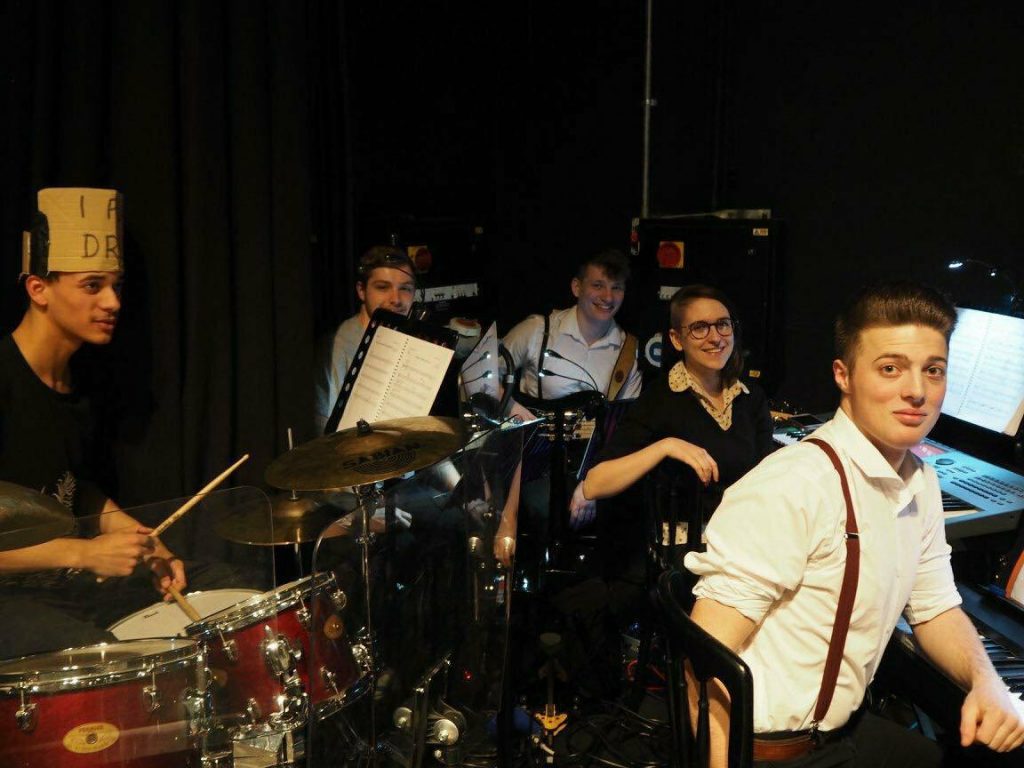 Outside of the music department, my studies in Drama and English Language and Linguistics have complimented my passion for vocal studies; I have learnt more about where the voice comes from, how the body acts as a resonator and how to correctly position vowels and consonants in speech. English has especially supported my love of writing and using some money from my scholarship, I self-released a debut EP of original music, called Let Me Read, both in hard copy and on various online music platforms, including Spotify, iTunes, Amazon and Google Play Music. This past December, I took my keyboard and ukulele (which, along with mandolin and guitar, I have been steadily teaching myself for about five years) to Ewan’s studios at ETB Mixing and recorded all the instrumental and vocal lines for four original songs in just nine hours! Needless to say, it was a crazy day!
Outside of the music department, my studies in Drama and English Language and Linguistics have complimented my passion for vocal studies; I have learnt more about where the voice comes from, how the body acts as a resonator and how to correctly position vowels and consonants in speech. English has especially supported my love of writing and using some money from my scholarship, I self-released a debut EP of original music, called Let Me Read, both in hard copy and on various online music platforms, including Spotify, iTunes, Amazon and Google Play Music. This past December, I took my keyboard and ukulele (which, along with mandolin and guitar, I have been steadily teaching myself for about five years) to Ewan’s studios at ETB Mixing and recorded all the instrumental and vocal lines for four original songs in just nine hours! Needless to say, it was a crazy day!
When I’m not practising over in Colyer-Fergusson, or in the library studying (or in my bed, sleeping), you might find me gigging at pubs and bars around Canterbury, both on-campus and off. I am enjoying networking with local musicians and have met so many wonderful people during my first year at University so far. I can’t wait for what the rest of my time here will bring!
Listen to Hannah on Spotify here, and follow her on Twitter here.
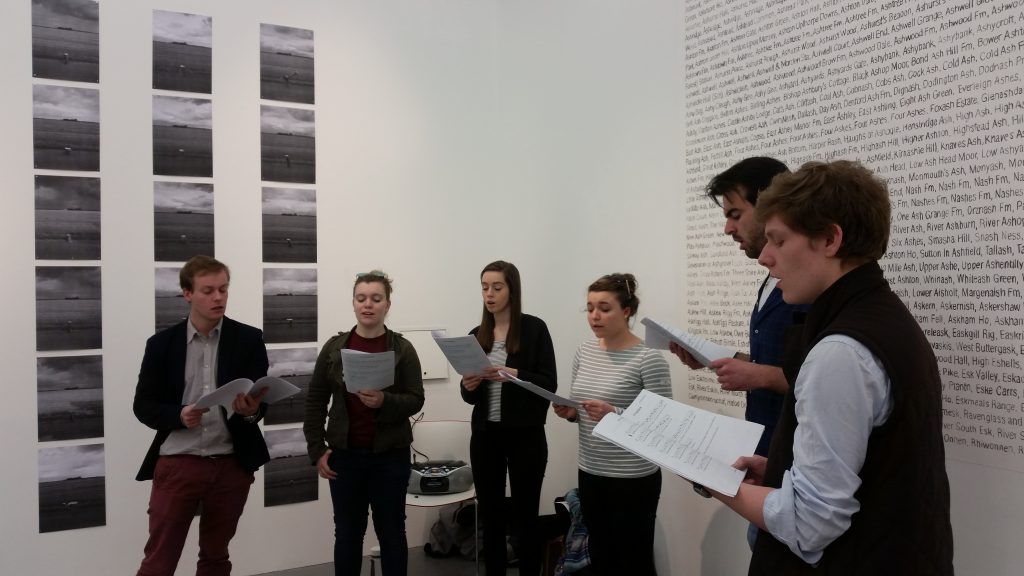 The group has been focusing on plainsong, including the luminous Kyrie by Hildegard von Bingen, in a sequence of music combined with Renaissance polyphony by William Byrd, exploring the remarkable contrast that occurs when a piece of plainchant suddenly blossoms into a four-part motet.
The group has been focusing on plainsong, including the luminous Kyrie by Hildegard von Bingen, in a sequence of music combined with Renaissance polyphony by William Byrd, exploring the remarkable contrast that occurs when a piece of plainchant suddenly blossoms into a four-part motet.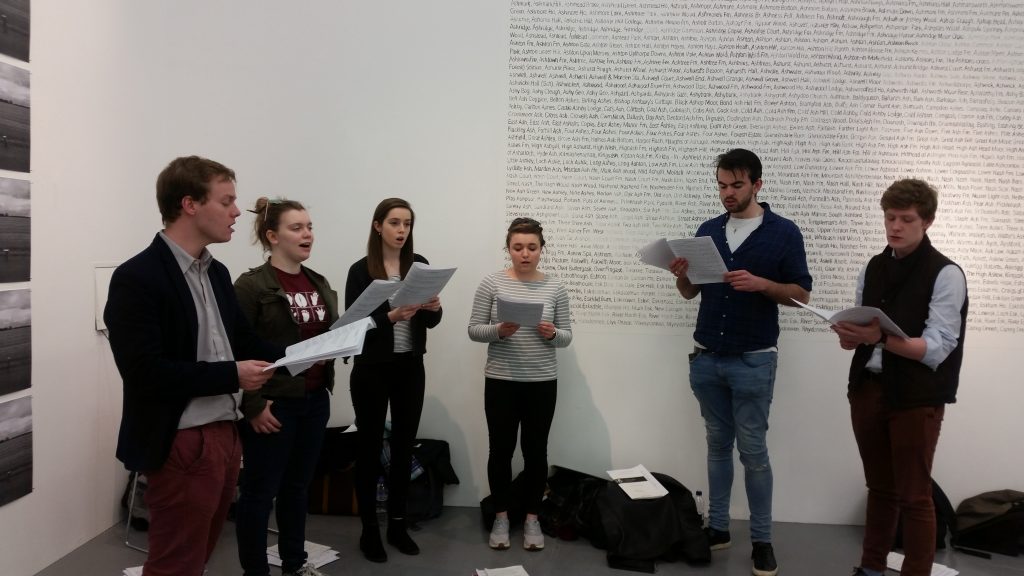 We’re preparing the sequence to perform amidst a sonic backdrop of a forest soundscape – and no, not just to play on Byrd/bird song… – which we were experimenting with yesterday, which created a wonderful sense of space, and which we are performing on Tuesday 3 April at 1.10pm; the change from musical colours to the natural sounds of birdsong leads the listener to a completely different place. And later, in June, the group will present the programme in the historic Undercroft of the 12-century Eastbridge Pilgrim’s Hospital in the heart of Canterbury as part of Summer Music Week.
We’re preparing the sequence to perform amidst a sonic backdrop of a forest soundscape – and no, not just to play on Byrd/bird song… – which we were experimenting with yesterday, which created a wonderful sense of space, and which we are performing on Tuesday 3 April at 1.10pm; the change from musical colours to the natural sounds of birdsong leads the listener to a completely different place. And later, in June, the group will present the programme in the historic Undercroft of the 12-century Eastbridge Pilgrim’s Hospital in the heart of Canterbury as part of Summer Music Week.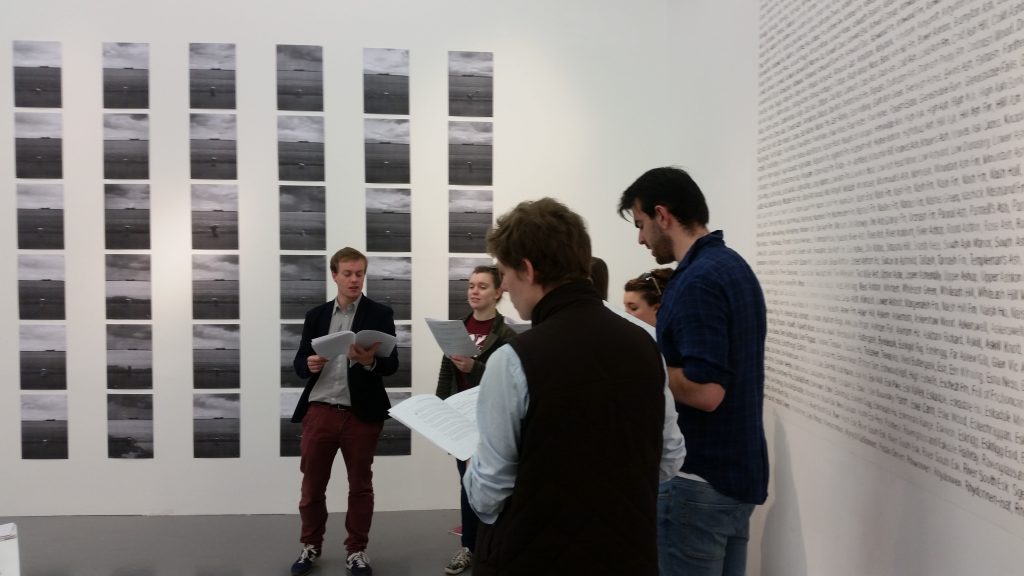 If yesterday’s rehearsal was anything to go by, the two events promise to be revelatory; come and experience time-out-of-time for yourself on Tuesday 3 April…
If yesterday’s rehearsal was anything to go by, the two events promise to be revelatory; come and experience time-out-of-time for yourself on Tuesday 3 April…


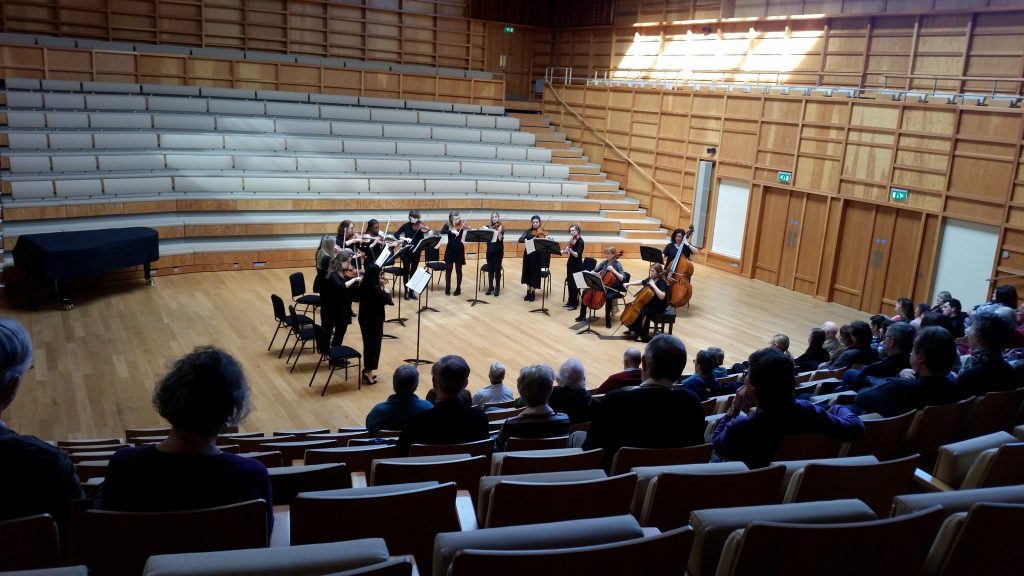


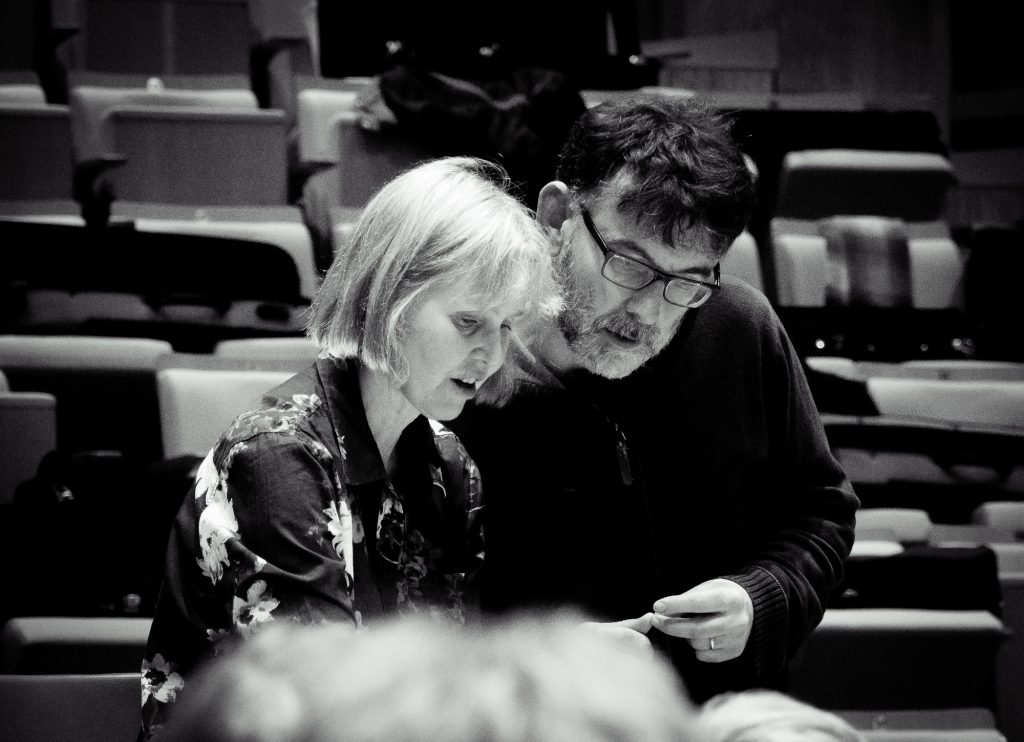
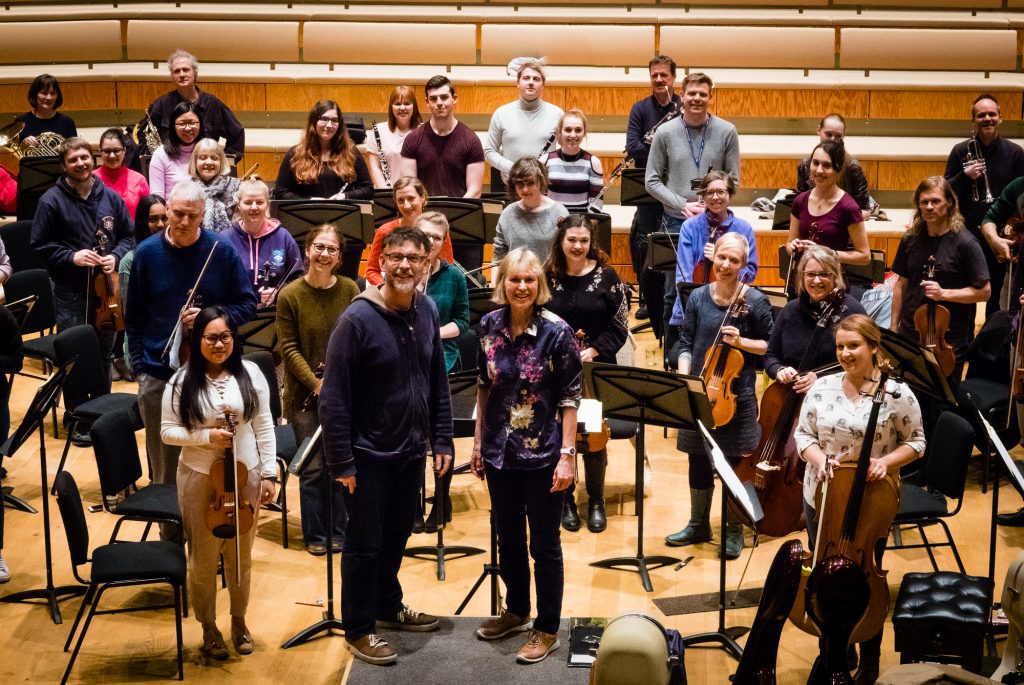
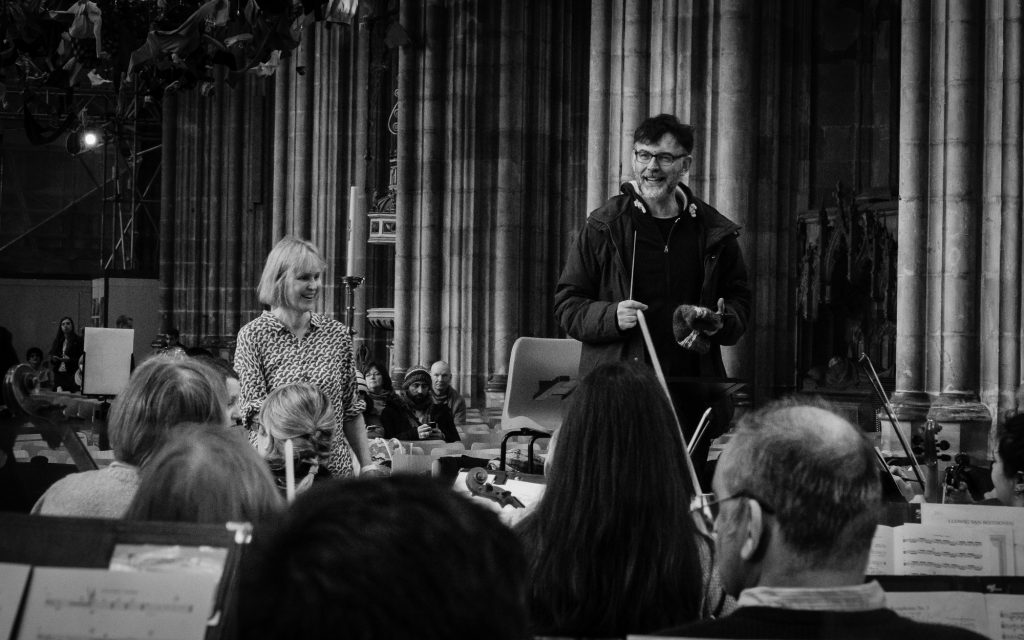

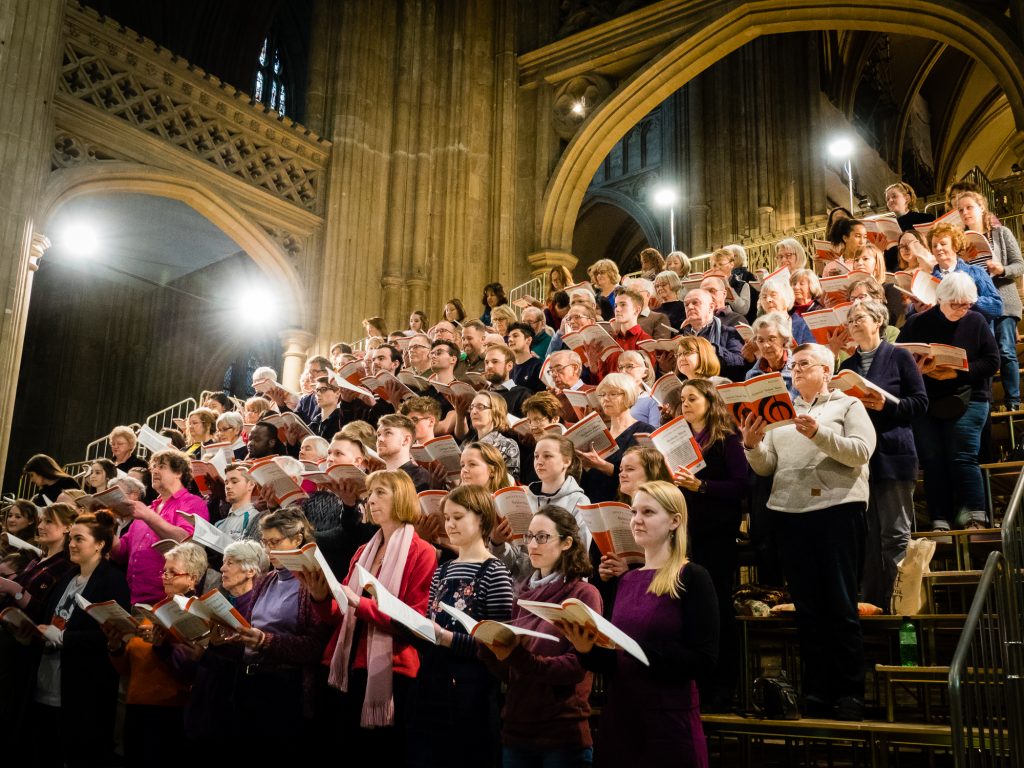
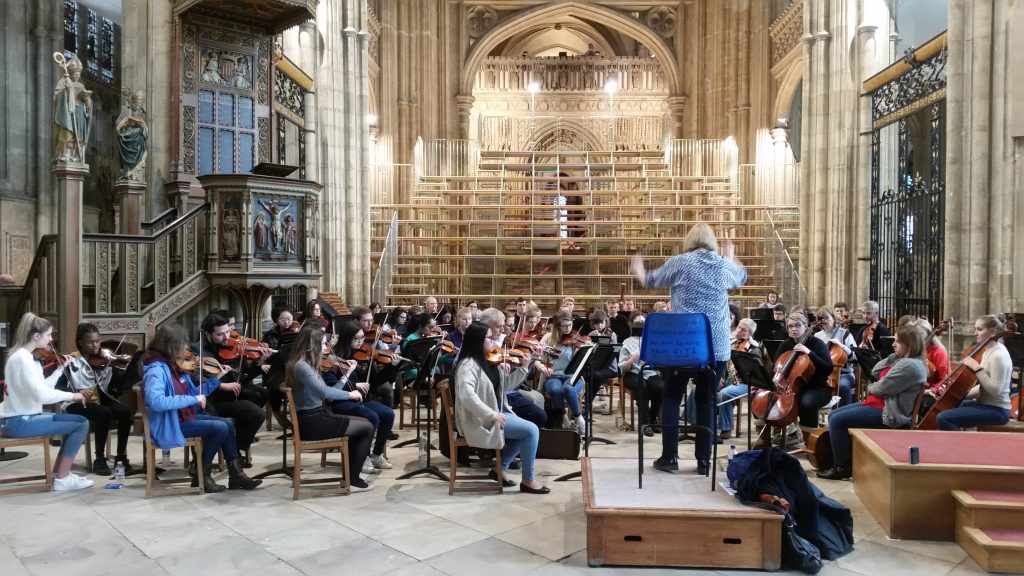
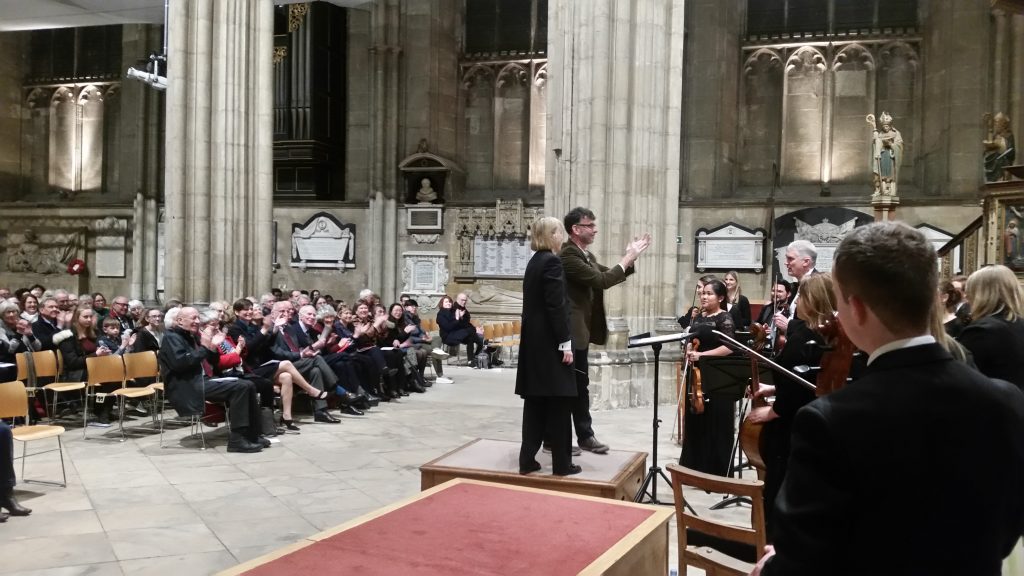
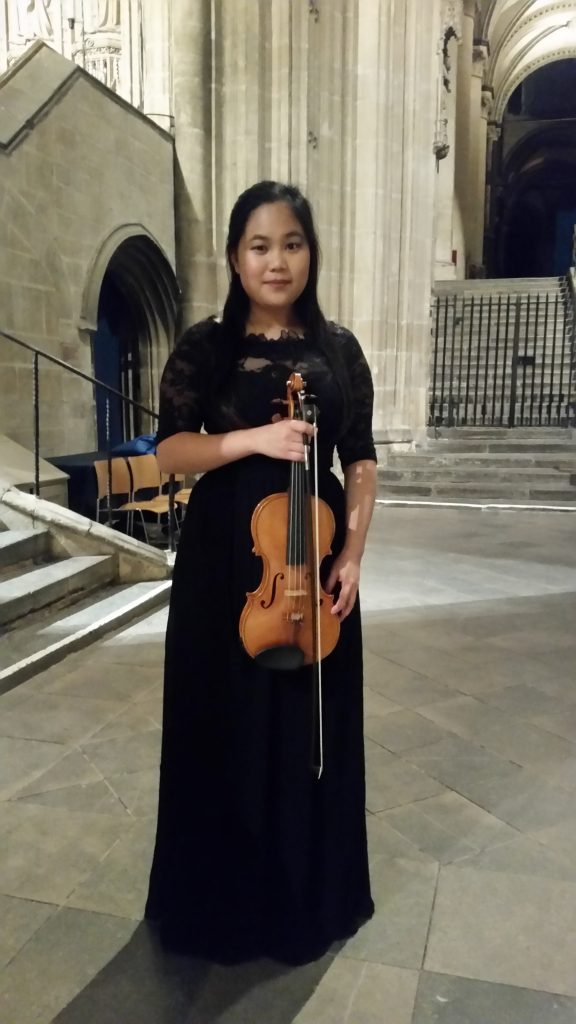
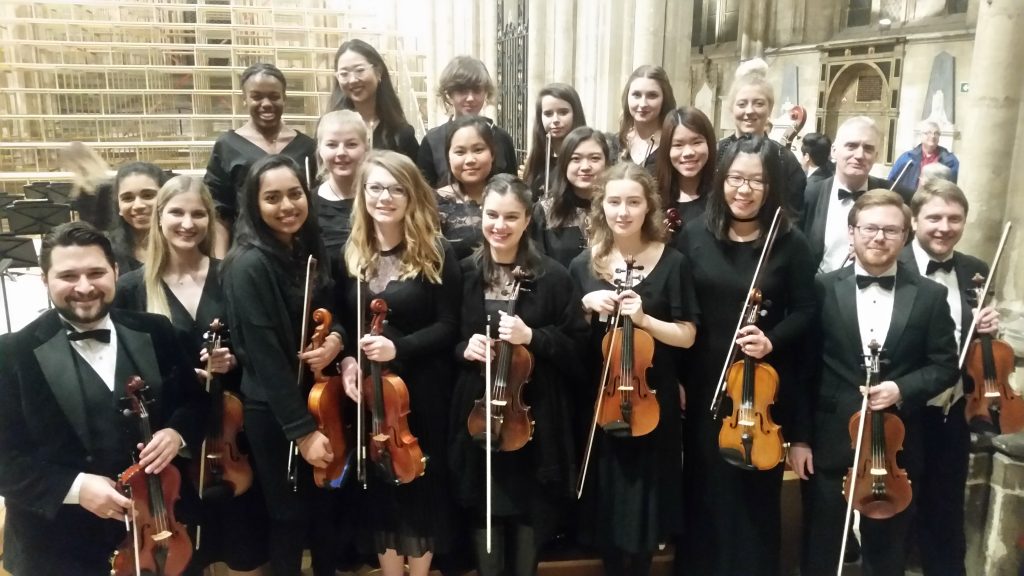
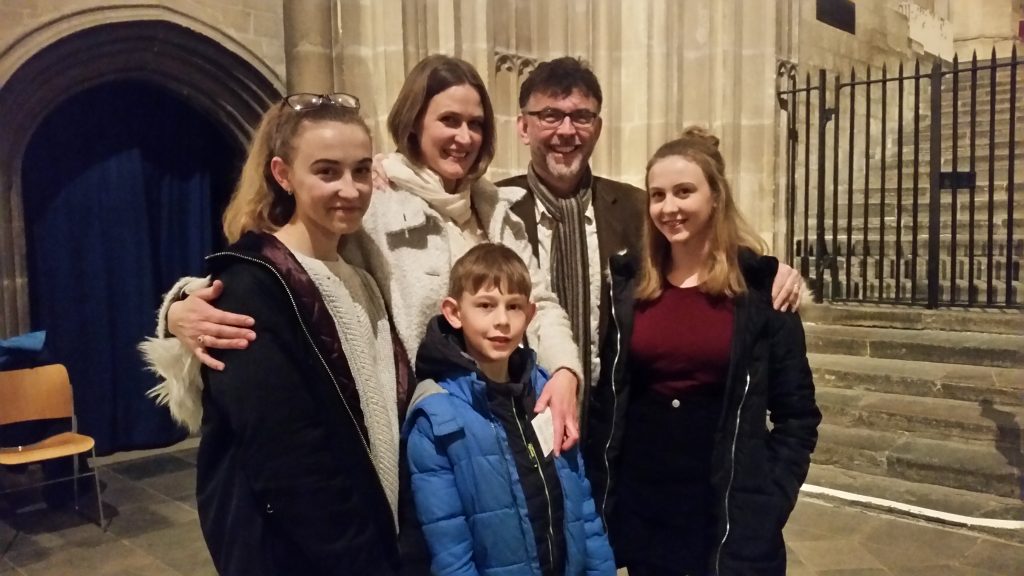
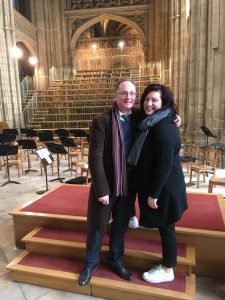 Thanks to all the behind-the-scenes crew as well, on what is a particularly long day; here’s Your Loyal Correspondent and the Music Administrator clearly early on the day…There are still plenty of events to come over the next few weeks: see what’s next
Thanks to all the behind-the-scenes crew as well, on what is a particularly long day; here’s Your Loyal Correspondent and the Music Administrator clearly early on the day…There are still plenty of events to come over the next few weeks: see what’s next 